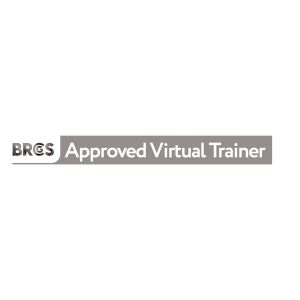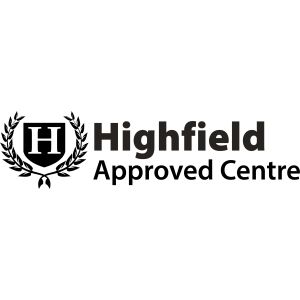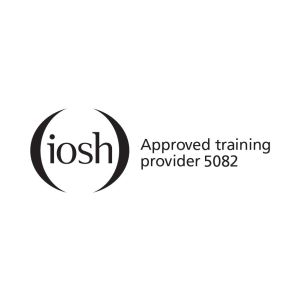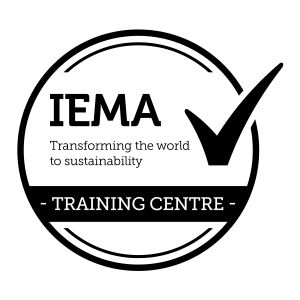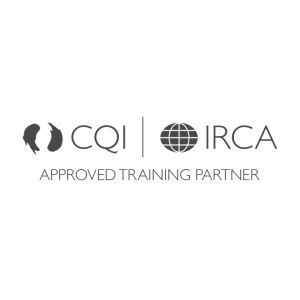The IEMA Environmental Sustainability Skills for the Workforce course is a one-day awareness course developed to upskill all workers with an elemental understanding of environmental sustainability principles. Relevant to any job role across all sectors this course will help to embed environmental cultural change into an organisation. Those businesses seeking to refresh environmental management within their business and looking for true value from ISO 14001, achieve their environmental goals and actively change their culture will value the support this course delivers. The course covers the main environmental risks and opportunities facing organisations; the importance of resource efficiency; the impacts of pollution, prevention, control and legislation; the impact of transport; and knowing how employees can support environmental sustainability.Duration1 Day, 08.30 – 16.45Who should attend?This course is ideally suited for those working in any job role across all sectors and has no formal entry requirements. It is benchmarked against the Level 2 RQF descriptors. This is an ideal course for those developing into the role of, or existing, designated environmental champions in the workforce.Course objectivesThis course will equip delegates with an understanding of some of the key concepts of sustainability in business and will develop relevant skills to be able to support sustainable development within their own business.Course content Develop an understanding of the main environmental and economic risks and opportunities Develop an understanding of compliance obligations and business drivers for change Develop an understanding of the main potential impacts on environment and sustainability Develop an understanding of how to improve environmental performance What are the benefitsAttendance will enable delegates to: Understand the key concepts and benefits of a sustainable business Support the application and development of sustainability in their own business Be able to promote, build and support sustainability within their business In-House CoursesOffering better value for money, they can be designed to more closely match your specific requirementsStyle of Delivery and Course LeadersOur course leaders have substantial experience in the field of environmental management systems. They are qualified and experienced with extensive practical management experience across a wide range of sectors including manufacturing, finance, pharmaceuticals, local and national government. We have extensive experience working across cultural boundaries, through our work in Europe, Africa, the Middle East, Asia and the Americas.CertificationThe assessment for Environmental Sustainability Skills for the Workforce consists of an online 20 question multiple-choice test. The test is completed through the IEMA assessment portal and candidates are sent a link upon registration to the assessment. Delegates successfully taking the course and passing the course assessment will be awarded an IEMA Sustainable Skills for the Workforce certificate.

Environmental Courses
Sustainability is increasingly being recognised as key within business strategy and corporate governance. The world’s foremost Environmental Management System standard, ISO 14001, designed to support your environmental sustainability strategy offers a systematic approach to manage the environmental impacts and aspects that affect your business. With iqms Learning training courses, we can help you upskill your teams to improve your organisation’s environmental performance.
With a minefield of legislation on waste, rising waste costs and customer and other stakeholders demanding improvements on environmental performance, this course is part of the environmental sustainability suite of training courses designed to help organisations support their environmental sustainability goals. The course is designed to improve compliance and encourage a culture of more sustainable waste and resource management, however most importantly it will help to reduce your company or organisation’s waste costs. Every organisation has a different way of dealing with their waste based on the type and amount that is produced. This course is aimed at delegates whose role deals predominantly with the management of wastes within their business and whose decisions have the ability to influence a significant level of change within company policy and routine.Duration1 Day, 09.00 – 17.00Who should attend?All those with responsibility for ensuring waste management is dealt with in a legally proper manner and those who are seeking to improve their understanding of the legislation in place on waste. It is also useful for those who are trying to improve their company waste management. Those who are trying to establish waste minimisation initiatives, perhaps as part of their sustainability goals or in companies with ISO 14001 as part of their continual improvement programme.Course content· Waste as a resource· How to demonstrate improvements· What is waste?· Managing resources and waste in the workplace· Legislation and ensuring compliance· Understanding and applying the waste hierarchy· Completing waste documentation· The cost of managing waste· How to identify opportunities for waste minimisation in the workplace· How to manage a successful waste minimisation working groupWhat are the benefitsBenefits include:· The knowledge to help you identify improvements in resource and waste management· The understanding of where and how to make those improvements· The skills to implement those improvements and demonstrate their impact to othersIn-House CoursesOffering better value for money, they can be designed to closely match your specific requirements.Style of Delivery and Course LeadersOur course tutors are approved training providers, approved by BRCGS, IRCA, RSPH and IEMA. They are qualified and experienced with extensive practical knowledge across a wide range of sectors including food manufacturing, catering and retail.CertificationAll delegates will be awarded a certificate verifying attendance and completion of the course.
With increasing complexity and demands of organisational processes there is a pressing need to ensure operational efficiency never drops. When it does, or where faults occur, it is critical that staff are equipped with the skills to investigate, determine cause(s) of the error and point to a solution. This investigation must be robust and always conducted in a time sensitive environment. Root Cause Analysis is an investigation process within the field of ISO Standards Management Systems such as ISO 9001 (Quality), ISO 14001 (Environmental) and ISO 45001 (Health & Safety) for example. This course will equip delegates with the knowledge, practical methods and skills to use RCA effectively in a variety of fault-finding applications.Duration1 Day, 09.00 – 17.00Who should attend?Routed in industry, RCA techniques are now commonplace in both product and service environments. Those with a responsibility in process efficiency at any level will benefit from understanding a range of proven methodologies used to conduct a robust root cause investigations and analyses to drive change and improve performance.Course contentThis course covers a range of RCA techniques and skills and uses a complex Case Study featuring an organisation which has established an Integrated Management System. The Case Study facilitates your Root Cause investigations to be conducted with a Quality, Environmental or Health & Safety focus as your investigation and learning brief demands. The course will cover; RCA Process What is Root Cause Analysis (RCA)? What are the steps involved in an RCA process? What methodologies are used within RCA? What are various types of causes? What are best practice guidelines when performing an RCA? What are pitfalls of RCA that you need to be aware of? 5 Whys What is the 5 Whys technique? What is the 5Ws1H technique? How can you use these for RCA? Questioning Skills How can you use a structured approach to make sure you ask the right questions? How to use this structured approach to make sure you ask a diverse set of questions about all potentially involved areas and processes? Evaluating Impact of Change and Decisions How to look forward to evaluate the impact of a change or a new decision on the current state? How to use this forward-looking approach systematically and correctly to get meaningful results? Cause and Effect Diagrams What is a cause-and-effect diagram? What is a fishbone diagram? How can you use this technique to search for root causes? Appreciation Technique What is appreciation technique? Often referred to as the “So What” approach used to consider the consequence of an upcoming change? Pareto Analysis What is Pareto principle? How can you use the Pareto Principle to prioritise your RCA approach systematically to avoid misdirecting resources and wasting time and money focusing on the wrong issues? Impact Analysis What is impact analysis? How can you use a powerful matrix to evaluate and focus on high-risk areas first? What are the 5 steps involved in an impact analysis? What are the benefitsConfident in Root Cause Analysis, those trained will be equipped to plan an investigation, prioritise time, question effectively, understand the relationship between cause and effect and apply risk-based thinking to identify suitable solutions.In-House CoursesOffering better value for money, they can be designed to closely match your specific requirements.Style of Delivery and Course LeadersOur course tutors are approved training providers, approved by BRCGS, CQI and IRCA, IEMA and Highfields Qualifications. They are qualified and experienced with extensive practical knowledge across a wide range of industrial, technical, product and service and commercial sectors.CertificationAll delegates will be awarded a certificate verifying attendance and satisfactory completion of the course.
A one-day awareness course designed to provide attendees with an introduction to environmental management systems based on the requirements of the ISO 14001:2015 standard and how this standard can be used to develop and improve an environmental management system. In the past, some companies may have seen environmental management as a luxury that they could ill afford but things are changing. Legislation designed to protect the environment has steadily increased and many customers use environmental performance as a key selection criteria when awarding contracts. This means that a systematic approach to environmental management can often make good commercial and financial sense.Duration1 Day, 08.30-16.45Who should attend?Decision-makers and managers at all levels, need to understand the fundamentals and practical implementation requirements of an effective Environmental Management System (EMS). Environmental Managers or those with responsibility for maintaining an existing EMS to a recognised standard will also find this course very useful. Also useful to anyone who needs an introduction to environmental management or those wishing to attend the registered 2-day auditor course without prior experience of environmental management systems.Course objectivesThis course will equip delegates with an understanding of the development and application of environmental management techniques and how the ISO 14001:2015 standard is interpreted and implemented. On completion of the course we expect delegates to be able to: Describe the purpose of an environmental management system Explain the purpose, content and interrelationships of ISO 14001, ISO 14004, and EMAS Interpret the specific requirements of ISO 14001 in the context of an effectively implemented environmental management system Course content Benefits of an effective EMS to businesses Essential environmental terminology and familiarisation with ISO 14001 definitions Purpose and intent of an environmental management system Environmental issues and how to assess and determine environmental aspects and impacts Understanding organizational context and a risk-based approach Summary of key environmental legislation and relevance of legislation to an EMS Structure and key requirements of ISO 14001 Setting environmental objectives Continual improvement process for an EMS Monitoring, measurement and analysis What are the benefitsAttendance will enable delegates to: Decide how best to develop the Environmental Management Systems of their organisation and avoid common problems Add to their environmental management career credentials Understand the relevance of environmental standards to their organisation Improve environmental decision-making Demonstrate the competitive benefits of environmental management standards to their own and other organisations In-House CoursesOffering better value for money, they can be designed to closely match your specific requirements.Style of Delivery and Course LeadersOur course leaders have extensive experience in Management across a wide range of sectors including manufacturing, service and professional organisations including Local, National and International Government. This wide experience enables them to make the course more interesting by using their relevant examples and case studies during workshop discussions. Our team of staff has extensive experience of working across cultural boundaries, through their work in Europe, Africa, the Middle East, Asia and the Americas.CertificationDelegates successfully completing the course will be awarded a CQI and IRCA Certified training accredited certificate. (2353).
This intensive one-day course is designed to equip delegates with an appreciation and understanding of the legislative structure across the UK, key areas of environmental legislation and regulations and how these are typically enforced. No company or organisation can afford to neglect the law, but many companies still do not realise the full extent of their obligations under environmental legislation. Lack of knowledge is no protection for either a company or an individual. This course is essential for those companies who are in the process of setting up an ISO 14001 or EMAS certified environmental management system and needing to build a Legal Register and need some guidance.Duration1 Day, 09.00 – 16.30Who should attend?This course is recommended for individuals with key environmental management responsibilities, particularly those seeking or maintaining certification against the ISO 14001 standard. It is also suitable for senior managers and directors and environmental auditors, in fact anyone seeking to increase their environmental legislative knowledge.Course objectivesThis course aims to provide an understanding of environmental legislation and the enforcement process for business.Course content Principles of environmental legislation European and International influences on Environmental Law The Environmental Protection Act and an overview of key legal instruments covering: Pollution Prevention and Control Air Quality Noise and nuisance Waste Management Producer Responsibility – packaging, WEEE Water Pollution Oil storage Contaminated Land Wildlife & Countryside What are the benefitsOn successful completion, delegates will have improved their knowledge of environmental legislation and requirements, improved confidence in the extent of compliance of their own systems and be able to identify any current weaknesses in their management of environmental legislation.Style of Delivery and Course LeadersOur course leaders have substantial experience in the field of environmental management and pollution control. They are qualified and experienced with extensive practical management experience across a wide range of sectors including manufacturing, finance, pharmaceuticals, local and national government. We have extensive experience working across cultural boundaries, through our work in Europe, Africa, the Middle East, Asia and the Americas.CertificationAll delegates will be awarded a certificate verifying attendance and completion of the course.
This two-day IEMA certified Environmental Sustainability Skills for Managers is designed to provide supervisors and managers with a strategic and operational overview of environmental sustainability as it affects their specific industry and work area. This course is invaluable in giving managers at all levels the confidence to get involved in, and fully engage in your organisation’s environmental sustainability challenges. Topics covered include: the understanding of the strategic opportunities and constraints that environmental sustainability presents organisations the importance of resource efficiency the impact of environmental sustainability across the value chain the impacts of pollution, prevention, control and environmental legislation in organisations how employees support environmental sustainability. Duration2 Days, 08.30 – 16.45Who should attend?This course is ideally suited for supervisors and managers across all sectors and has no formal entry requirements.Course objectivesThis course will equip delegates with knowledge of the key concepts and building blocks of sustainability in business and develop relevant skills to be able to apply sustainable development within their own business.Course content Understand the main environmental and economic risks and opportunities Understand compliance obligations and business drivers for change Understand the main potential impacts on environment and sustainability Understand how to improve environmental performance How to evaluate drivers for change and barriers Understand baselines data to monitor and improve performance How to apply knowledge of environmental sustainability across the value chain How to demonstrate the importance of implementing resource efficiency How to demonstrate how employees can improve environmental performance What are the benefitsAttendance will enable delegates to: Decide how best to apply and develop sustainability in their own business Add to their environmental management career credentials Be able to build and support sustainability within their business Improve environmental decision-making Discuss confidently the benefits of a sustainable business with others within their business and to their stakeholders In-House CoursesOffering better value for money, they can be designed to more closely match your specific requirements.Style of Delivery and Course LeadersOur course leaders have substantial experience in the field of environmental management systems. They are qualified and experienced with extensive practical management experience across a wide range of sectors including manufacturing, finance, pharmaceuticals, local and national government. We have extensive experience working across cultural boundaries, through our work in Europe, Africa, the Middle East, Asia and the Americas.CertificationThe assessment for Environmental Sustainability Skills for Managers consists of an online 20 question multiple-choice test. The test is completed through the IEMA assessment portal and candidates are sent a link upon registration to the assessment. Delegates successfully taking the course and passing the course assessment will be awarded an IEMA issued certificate.
This interactive CQI and IRCA Certified two-day training programme aims to help delegates to understand and apply the principles and techniques that are required for conducting effective environmental audits. A good system of auditing is one of the most effective methods of ensuring that the Environmental Management System (EMS) continues to meet its objectives and for control and for identifying improvements. Auditors need to be sufficiently competent in order to evaluate the EMS effectively if the organisation is to achieve the full benefit from its EMS and have confidence that it is achieving its objectives. This IRCA registered course focuses delegates on the most important attributes of a modern and effective environmental management system and helps them to understand the role of the auditor in its development and continual improvement. It introduces delegates to business environmental issues and relevant legislative issues. The course is based on auditing with the ISO 14001:2015 standard.Duration2 Days, 09.00 – 17.10 (day 1) 08.45 – 17.15 (day 2)Who should attend?This course is essential for those who will undertake internal environmental audits, or who will be required manage and implement internal audit programmes. Other people who find this course useful are team leaders and supervisors with EMS, who are looking to broaden their awareness of environmental issues in order to understand how they can improve their overall contribution to the success of the business. The course does not require any past auditing or environmental management system experience.Course objectivesTo enable delegates to effectively plan, perform, evaluate and report the results of internal environmental audits with confidence. To help delegates understand the key attributes of an efficient and effective environmental management system and the role of the internal auditor in its continual improvement and development.Course content Basic environmental thinking and risk-based concepts Structure and principles of an environmental management system Overview of key ISO 14001:2015 requirements Auditors roles and responsibilities Types of environmental audit Effective auditing techniques and good audit practices Reporting valid findings and managing corrective actions What are the benefitsThis course, combined with an ISO 14001 foundation course, satisfies the formal training requirements for those wishing to register under the CQI and IRCA Certified training scheme as an Internal EMS Auditor. Successful delegates will be equipped with the technical skills and knowledge required to plan, conduct and report internal EMS audits. Delegates also find the interactive nature of the course, it’s challenging content and extensive use of team-based exercises an enjoyable and effective way to learn.In-House CoursesOffering better value for money, they can be designed to closely match your specific requirements.Style of Delivery and Course LeadersA combination of presentations and guided exercises together with an interactive role-play exercise involving a simulated audit makes this course both highly beneficial and enjoyable for participants. Our course leaders are qualified and experienced environmental auditors with extensive practical management experience across a wide range of sectors including manufacturing, service and utilities, professional, local and national government. We have extensive experience working across cultural boundaries, through our work in Europe, Africa, the Middle East, Asia and the Americas.CertificationDelegates successfully completing the course will be awarded a CQI and IRCA Certified training certificate (2354).
This integrated management systems internal auditor programme combines the disciplines of quality, environmental and health & safety management auditing based on the ISO 9001:2015, ISO 14001:2015 and ISO 45001:2018 standards. This three-day interactive training programme is designed for those who need to be able to understand and apply recognised principles and techniques of effective management system auditing to quality, environmental and health & safety management systems. The modern management systems auditor cannot rely on procedural auditing, but also needs to be able to audit processes with an emphasis on risk-based thinking. An effective audit will bring benefits to your organisation and ensure the integrated management system (IMS) continues to meet its objectives. Internal auditors need to understand their role and responsibilities and be sufficiently competent in evaluating the IMS effectively. This course focuses delegates on the most important attributes of an IMS and helps them to understand the role of the auditor in its development and continual improvement.Duration3 days, 9.00 – 17.30Who should attend?This course is essential for those who will undertake internally integrated management system audits based on the ISO 9001:2015, ISO 14001:2015 and ISO 45001:2018 standards, or for those who will be required to plan, manage and implement internal audit programmes. Other people who will find this course useful are team leaders and supervisors within the IMS, who are looking to broaden their awareness of quality, environmental and occupational health & safety issues to understand how they can improve their overall contribution to the success of the business. The course does not require any past auditing or quality, environmental and health & safety management system experience.Course objectivesUpon successful completion of this course, students will: Understand the purpose and benefits of management systems Have a greater understanding of the structure, content and the intent of ISO 9001 and ISO 14001:2015 Be familiar with the terms and definitions used Have a greater understanding of the concept of the process model and apply the process approach Be aware of all stages of the audit cycle Gain the knowledge and skills necessary to plan, conduct, report internal audits of management systems Course content Overview of ISO 9001:2015 quality, ISO 14001:2015 environmental and ISO 45001:2018 occupational health & safety management system requirements Plan-Do-Check-Act methodology Quality and environmental management principles Risk-based thinking Auditors roles and responsibilities Types of audits Effective auditing tools and techniques and good audit practices Reporting valid findings and managing corrective actions What are the benefitsSuccessful delegates will be equipped with the technical skills and knowledge required to plan, conduct and report internal integrated management systems audits, saving both times spent on auditing and cost to your organisation. Delegates also find the interactive nature of the course, its challenging content and extensive use of team-based exercises an enjoyable and effective way to learn.In-House CoursesOffering better value for money, they can be designed to closely match your specific requirements.Style of Delivery and Course LeadersOur course leaders are management systems professionals, as well as being qualified, registered and experienced auditors. They have extensive knowledge across a wide range of sectors including manufacturing, finance, pharmaceuticals, local and national government. They have all cut their teeth as successful change agents within high profile organisations, and fully understand the range of technical, legislative and people challenges that face those with a responsibility for delivering real quality improvements.CertificationDelegates completing the course will be awarded an iqms Learning certificate.
This IOSH accredited integrated management systems (IMS) internal auditor course combines the disciplines of quality, environmental and health & safety management auditing, based on the ISO 9001:2015, ISO 14001:2015 and ISO 45001:2018 standards. Whilst accredited auditing courses are available for single discipline auditors, integrated management systems auditing courses mostly do not award a certificate giving any recognition from a recognised body. This course is a four-day intensive and interactive training programme aimed at developing practical and proficient auditing skills with an audit simulation on the final day. Designed for those who need to be able to apply recognised principles and techniques of effective management system auditing and to fast-track their development to be able to conduct effective audits of their integrated management system. Internal auditors need to understand their role and responsibilities and be sufficiently competent in evaluating the IMS effectively. The modern management systems auditor needs to be able to audit processes with an emphasis on risk-based thinking to ensure the integrated management system (IMS) continues to meet its objectives. By the end of the course delegates will be well-equipped to contribute to continual improvement of system and performance.Duration4 days, 8.30 – 17.15Who should attend?This accredited course is essential for those who are responsible for undertaking internal integrated management system audits based on the ISO 9001:2015, ISO 14001:2015 and ISO 45001:2018 standards. An essential course for those who will be required to plan, manage and implement internal audit programmes based on the quality, environmental and OHS standards. Other people who will find this course useful are managers, team leaders and supervisors, who are looking to broaden their awareness of QHSE systems and audits, gaining an understanding of how they can improve their overall contribution to the success of the business. The course does not require any past auditing or quality, environmental or health & safety management system experience.Course objectivesUpon successful completion of this course, students will: Understand the purpose and benefits of management systems Have a greater understanding of the structure, content and the intent of ISO 9001, ISO 14001 and ISO 45001 (including aspects/impacts, hazards/risk and the regulatory framework) Be familiar with the terms and definitions used in auditing systems Have a greater understanding of the concept of the process model and apply the process approach Be aware of all stages of the audit cycle Gain the knowledge and skills necessary to plan, conduct, report internal audits of management systems Express what audit documentation is required to complete effective audits and the elements of what an audit report should contain. Effectively follow-up and close out audit non-conformances What are the benefitsUpon successful completion delegates will be equipped with the technical skills and knowledge required to plan, conduct and report internal integrated management systems audits, saving both time spent on auditing and cost to your organisation. Delegates will also find the interactive nature of the course, it’s challenging content and extensive use of team-based exercises an enjoyable and effective way to learn.In-House CoursesOffering better value for money, they can be designed to closely match your specific requirements.Style of Delivery and Course LeadersA combination of presentations and guided exercises together with an interactive role-play exercise involving a simulated audit makes this course both highly beneficial and enjoyable for participants. Our course leaders are IRCA/IEMA qualified and experienced quality, environmental and occupational health & safety management systems auditors with extensive practical management experience across a wide range of sectors including manufacturing, service and utilities, professional, local and national government. We have extensive experience working across cultural boundaries, through our work in Europe, Africa, the Middle East, Asia and the Americas.CertificationDelegates successfully completing the course, including examination will receive an IOSH certificate.
This highly interactive, intensive and challenging 5-day environmental management systems training course is designed for those people who require an in-depth understanding of auditing techniques and skills associated with the Lead Auditor role. This course is registered with both the Institute of Environmental Management and Assessment (IEMA) and CQI and IRCA Certified training.Duration5 Days, 08.30 – 17.30 (days 1-3) 08.30 – 17.45 (day 4) 08.30 – 16.15 (day 5)Who should attend?This course satisfies the training requirement for those seeking to register with the CQI and IRCA Certified training auditing scheme. It is also essential for any serious environmental practitioner, particularly those who have the main responsibility for implementing and maintaining their environmental management system and manage an audit programme for internal audits. Essential also to those who are required to perform more demanding and extensive company audits (corporate auditing); or who are required to regularly assess the performance of other companies (supplier, contractor and/or certification auditors); and for those who are seeking to develop their auditing and environmental skills to a professional level.Course objectivesThose attending this course are expected to have prior knowledge of the following: Environmental Management principles and concepts: The Plan, Do Check, Act (PDCA) cycle Environmental issues, including an appreciation of environmental protection and pollution prevention and control Environmental management terms and definitions Appreciation of environmental compliance issues Environmental management terms and definitions Typical structures for environmental management systems including process-based systems Structure, content and requirements of ISO 14001:2015 This knowledge can be gained in several ways: Previous experience and existing knowledge Attending a CQI and IRCA Certified training ISO 14001 training course – or equivalent Reading or self-study If you would like to attend our CQI and IRCA Certified training ISO 14001 Foundation course at a discounted price to help you prepare for this Lead Auditor course please contact us.Course contentThe course is designed to help delegates deliver value-added audits to understand the principles of good Environmental Management and to develop their knowledge of the environmental management standard to enable you to lead an audit team. It will also develop delegates’ knowledge & understanding of different environmental audit types, and the practical skills required to plan, execute and report environmental management audits. On completion, delegates will be able to evaluate the effectiveness of an EMS based on the ISO 14001:2015 standard at a level acceptable to certification bodies.What are the benefitsDesigned not only to help people perform value-added audits this course is also designed to develop delegates’ wider understanding of environmental management systems development and implementation. Delegates will gain an understanding of the level of performance required for implementing a successfully certified EMS and how to assess against the ISO 14001:2015 standard. It will help delegates to develop essential conceptual skills including risk-based thinking, continual improvement, life-cycle thinking, and process-based approaches. This course satisfies the formal training requirements for those wishing to register with the IEMA Auditor Registration Scheme and/or with the CQI and IRCA Certified auditing scheme.In-House CoursesOffering better value for money, they can be designed to closely match your specific requirements.Style of Delivery and Course LeadersA combination of presentations and guided exercises and a highly interactive role-play exercise involving a simulated audit makes this course both beneficial and enjoyable for participants. Course attendees are assessed on their knowledge and understanding throughout the course and will also be required to sit a 2-hour examination to assess their level of understanding to complete this course. Our course leaders have substantial experience in the field of environmental management systems design and implementation. They are qualified and experienced auditors with extensive practical management experience across a wide range of sectors including manufacturing, service and utilities, local and national government.CertificationDelegates completing the course, including examination, will be awarded both a CQI and IRCA Certified training certificate (2355) and an IEMA Certified training certificate.
Build the practical skills and knowledge you need to develop an Environmental Management System (EMS) with this training course. Discover the actions, tools and techniques required to implement or improve an inherited EMS, including procedural and process information.Duration2 Days, 09.00 – 17.00Who should attend? People involved in planning and/or coordinating the implementation process for a system addressing environmental issues People who have been assigned the task of establishing or inheriting an EMS Decision-makers in the implementation process Those wanting to understand the implementation process Course objectives Identify environmental aspects and impacts that create the baseline from which an EMS is created and developed Recognise cultural change and management issues, which play a role in the implementation process Establish the initial steps to be taken in developing an EMS Develop skills in the preparation of written procedures and required documentation Recognise the appropriate resources and capabilities necessary for maintaining an EMS Course content What is an EMS How to Implement & Improve an EMS The ISO 14001 model and an ISO 14001:2015 Standard Revision Overview Developing an Environmental policy Common features of an EMS Identifying environmental risks Managing environmental improvement actions Operational controls and emergency planning Training & communication Developing and maintaining EMS documentation Monitoring, measuring and reporting Auditing and management review Cultural change and implementation Maintaining an EMS to achieve continual improvement What are the benefitsThis course offers valuable, practical knowledge and skills essential to design , implement and manage an efficient environmental management system.In-House CoursesOffering better value for money, they can be designed to closely match your specific requirements.Style of Delivery and Course LeadersOur course leaders have extensive experience in Management Systems across a wide range of sectors including manufacturing, service and professional organisations including Local, National and International Government. This wide experience enables them to make the course more interesting by using their relevant examples and case studies during workshop discussions. Our team of staff has extensive experience of working across cultural boundaries, through their work in Europe, Africa, the Middle East, Asia and the Americas.CertificationDelegates will receive a Certificate of Attainment
This integrated management systems internal auditor programme combines the disciplines of quality and environmental management systems. The course is based on auditing to the ISO 9001:2015 and ISO 14001:2015 standards. This interactive three-day training programme is designed for those who need to be able to understand and apply recognised principles and techniques of effective management system auditing for quality and environmental management systems. The modern management systems’ auditor needs to be trained not only on procedural auditing, but also be able to audit processes with an emphasis on a risk-based approach. An effective audit will bring benefits to your organisation and ensure the integrated management system (IMS) continues to meet its objectives. Internal auditors need to understand their role and responsibilities and be sufficiently competent in evaluating the IMS effectively. This course focuses delegates on the most important attributes of an IMS and helps them to understand the role of the auditor in its development and continual improvement.Duration3 days, 9.00 – 17.30Who should attend?This course is an essential for those who will undertake internal integrated management system audits based on the ISO 9001:2015 and ISO 14001:2015 standards, or who will be required to plan, manage and implement internal audit programmes. Other people who find this course useful are team leaders and supervisors within the IMS, who are looking to broaden their awareness of quality and environmental issues in order to understand how they can improve their overall contribution to the success of the business.Course objectivesUpon successful completion of this course, students will: Understand the purpose and benefits of management systems Have a greater understanding of the structure, content and the intent of ISO 9001 and ISO 14001:2015 Be familiar with the terms and definitions used Have a greater understanding of the concept of the process model and apply the process approach Be aware of all stages of the audit cycle Gain the knowledge and skills necessary to plan, conduct, report internal audits of management systems Course content Overview of ISO 9001:2015 quality and ISO 14001:2015 environmental Management System requirements Plan-Do-Check-Act methodology Quality and environmental management principles Risk-based thinking Auditors roles and responsibilities Types of audits Effective auditing tools and techniques and good audit practices Reporting valid findings and managing corrective actions What are the benefitsSuccessful delegates will be equipped with the technical skills and knowledge required to plan, conduct and report internal integrated management systems audits, saving both time spent on auditing and cost to your organisation. Delegates also find the interactive nature of the course, it’s challenging content and extensive use of team-based exercises an enjoyable and effective way to learn.In-House CoursesOffering better value for money, they can be designed to closely match your specific requirements.Style of Delivery and Course LeadersOur course leaders are quality management professionals, as well as being qualified, registered and experienced auditors. They have extensive knowledge across a wide range of sectors including manufacturing, finance, pharmaceuticals, local and national government. They have all cut their teeth as successful change agents within high profile organisations, and fully understand the range of technical, legislative and people challenges that face those with a responsibility for delivering real quality improvements.CertificationDelegates successfully completing the course will be awarded an iqms Learning Integrated Management System (IMS) Auditor certificate.
This intensive one-day course is designed to equip delegates with an appreciation and understanding of the basics of carbon footprints and carbon accounting, how to calculate their own company footprint and how to simply manage and reduce the size of their carbon footprint. Larger businesses are legally required to calculate their carbon footprint for the carbon emissions they are directly responsible for (Scope 1) and the emissions the electricity supplied (Scope 2). Scope 3 emissions is the largest potential category for many businesses and includes the supply chain which to date has been voluntary to calculate. Many large businesses are focusing their NetZero approach to include Scope 3 emissions so companies are now asking all of the businesses they deal with to supply data on their own carbon emissions. If you are part of a supply chain for a larger business and are being asked information on your own carbon footprint then this is the course to help you.Duration1 Day, 09.00 - 17.00Who should attend?This course is recommended for individuals who are responsible for understanding and reliably calculating their company’s carbon footprint, for business owners who need to understand about carbon footprints and respond to their customer needs. It is also suitable for environmental managers given this responsibility or anyone who needs to increase their specific knowledge of this topic such as those who are involved in managing the supply chain (e.g., Procurement) and for Directors who find carbon accountable is now part of their remit.Course objectivesThis course aims to provide an understanding of terminology and definitions linked to carbon management. This course is an intensive workshop that focuses on the practical skills required to create a carbon footprint report and begin their route to NetZero.Course content Understand carbon emissions terminology Understand what a carbon footprint is and be familiar with the Greenhouse Gas Accounting Protocol Measure your business carbon footprint Create a carbon reduction plan Carbon reduction technology options What are the benefitsOn successful completion, delegates will have improved their knowledge of carbon management and be able to start to develop a NetZero plan for their business and be able to talk knowledgeably with their stakeholders including their customers and supply chain.In-House CoursesThis course is also available on an in-house basis which can allow courses to be modified to more closely match your specific business requirements. The course can be delivered either virtually or face-to-face. Please contact us for further information.Style of Delivery and Course LeadersOur course leaders have substantial experience in carbon and energy management. They are qualified and experienced with extensive practical management experience across a wide range of sectors including power distribution, manufacturing, engineering, finance, local and national government. We have extensive experience working across cultural boundaries, through our work in Europe, Africa, the Middle East, Asia and the Americas.CertificationAll delegates will be awarded a certificate verifying attendance and completion of the course.
This one-day course is designed to give delegates an introduction to energy management principles and practical skills which can be applied in a business setting. This course also provides energy technology options which could be available for your business to implement, for example solar or heat pumps. As the drive to reduce carbon emissions increases and with energy costs rising dramatically for businesses, ignoring energy management principles could mean spending more money on energy than your competitors and more than what is necessary to continue with your business operations. This course is designed to start your business along the path of understanding energy management principles and reducing energy usage leading to reduced costs.Duration1 Day, 09.00 - 17.00Who should attend?This course does not require any prior knowledge and is intended to give an introduction to energy management for non-energy managers or non-specialists in this field. It is recommended for individuals who have been given responsibilities for energy management as part of their current role, or are taking on this responsibility on behalf of their business. It is also suitable for managers who have been asked to participate in energy reduction in their business, as well as senior managers and directors seeking further knowledge on this increasingly important subject.Course objectivesThis course aims to provide an introduction to energy management for business so that delegates understand the fundamentals of energy use, are able to consider some practical options for energy solutions and introduce them to the basics of energy managementCourse content What is Energy Management? What is Energy and how is it delivered? Energy Bills and Commercial Contracts Energy and Carbon Policy Energy Technology and Application Energy Management Process What are the benefitsOn successful completion, delegates will have improved their knowledge of energy management. They will be able to develop a basic energy strategy and policy and be able to understand some options for reducing energy in their business which should lead to overall cost reductions for energy use.In-House CoursesThis course is also available on an in-house basis which can allow courses to be modified to more closely match your specific business requirements. The course can be delivered either virtually or face-to-face. Please contact us for further information.Style of Delivery and Course LeadersOur course leaders have substantial experience in carbon and energy management. They are qualified and experienced with extensive practical management experience across a wide range of sectors including power distribution, manufacturing, engineering, finance, local and national government. We have extensive experience working across cultural boundaries, through our work in Europe, Africa, the Middle East, Asia and the Americas.CertificationAll delegates will be awarded a certificate verifying attendance and completion of the course.
Our staff members have extensive experience working across cultural boundaries as a result of their work in Europe, Africa, the Middle East, Asia, and the Americas. They are able to make our courses engaging by using relevant examples and case studies during workshop discussions due to their significant experience.
We have extensive experience in developing bespoke training and coaching, designed to enhance the capability of your people to drive Management System improvement programmes and manage risks with confidence at all levels to achieve managed sustainable results. Contact us to discuss how we can help you.

















